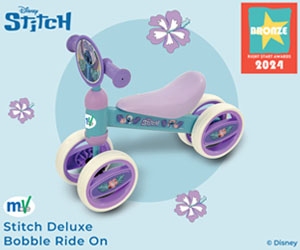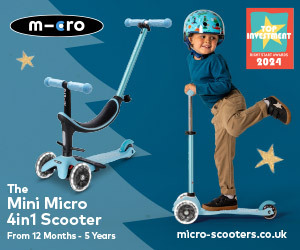A
Accidents
Icy pavements increase the risk of accidents. If children fall, check whether they need sympathy or serious treatment. Watch out for strange-looking limbs and/or severe pain and swelling. If children are pale, cold or feel sick or light-headed, they’re likely to have broken a bone. Call the ambulance immediately. Don’t move the limb or give them anything to eat or drink – they may need an anaesthetic at the hospital.
B
Bugs
You can’t magically cure bugs such as flu but you can make your child feel better. Make sure they drink plenty of fluids to prevent dehydration, especially if they also have vomiting and/or diarrhoea. Wrap them up warmly and give liquid paracetamol, such as Calpol, to help soothe aches and pains.
C
Colds and coughs
Garlic can help combat colds and coughs. More than 1000 studies have shown that it stimulates the body’s white blood cells, which fight infection. Try adding a little crushed garlic to soups, stews and vegetables.
D
Diet
Nutritional deficiencies make illness more likely. Ensure your child eats a balanced diet, including fruit and vegetables. If they don’t eat meat or fish, they may not get enough iron. So make sure you include other foods that are rich in iron, such as fortified breakfast cereals, dark green vegetables, bread, beans and lentils, tofu, dried apricots, figs and prunes.
E
Eczema
Cold, windy weather can dry out the skin and winter woollies can irritate it. Try Childs Farm Baby Moisturiser, available from Amazon price £2.90. It's suitable from birth and is vegan and cruelty-free – best of all, it gets great reviews from mums!
F
Feet
Wellingtons and snow boots have become standard seasonal footwear, but make sure they fit well. Often, they are bought without making the measurement checks used when buying ordinary shoes. Children’s feet grow in spurts and can be damaged if they’re forced into ill-fitting footwear. Don’t forget to give boots a chance to air and dry out before being worn again to help prevent bacteria from building up.
G
Glue ear
If your child has a cold or ear infection that doesn’t seem to be shifting, be on the lookout for glue ear. Roughly 80 per cent of pre-school children will suffer from this. It happens when fluid collects in the middle ear, behind the ear drum. Glue ear dulls the hearing, so one of the first signs is hearing loss. Try calling children from behind and see if they respond. If glue ear persists past winter, then your child may need to have grommets – tiny ventilation tubes – fitted into the ears. Visit your GP who may refer your child to an ear, nose and throat specialist.
H
Helmets
Studies have shown that helmets reduce the risk of head injuries by 85 per cent. Most of us have got the message about cycling and the use of helmets. But also make sure your child wears one for sledding and other outdoor activities. If you start your child young, helmet-wearing will soon become second nature for all ‘rough and tumble’ activities.
I
Infections
Young immune systems take time to strengthen. So, don’t panic if it seems like your child spends most of the winter coughing and sneezing. It’s normal for young children to get up to eight coughs and/or colds a year.
J
Jabs
The children's nasal spray flu vaccine is safe and effective. It's offered free on the NHS to children age two-to-three years and to all primary school children. It’s given at the GP surgery if your child is under school age, or otherwise at school. Flu can be a very unpleasant illness for children and can also lead to serious problems, such as bronchitis and pneumonia.
If your child is aged between six months and two years and has a long-term health condition that makes them at higher risk from flu, they'll be offered a flu vaccine injection instead of the nasal spray. This is because the nasal spray is not licensed for children under two years.
K
Kindness
Winter kindness is about more than soothing sore throats and noses. There’s an old Japanese proverb that says: ‘One kind word can warm three winter months’. Express your kindness by reading your child’s favourite stories and singing songs together on sick days.
L
Lips
Babies, toddlers and infants can all suffer from chapped lips in winter. Take a tip from Norwegian women and use pure lanolin. Many mums swear by Dr. Lipp: Original Nipple Balm for Lips. Originally designed for sore nipples after breastfeeding, it’s 100 per cent organic lanolin. It costs £10.20 from www.spacenk.co.uk
M
Medicine
Mary Poppins wasn’t far wrong when she sang: ‘A spoonful of sugar helps the medicine go down.’ While we don’t advise a sugar laden diet, a little sweetness can make medicine and ‘things that are good for you’ more palatable. For instance, you can finely chop garlic and mix it into a drink with honey and water (see Colds and Coughs).











